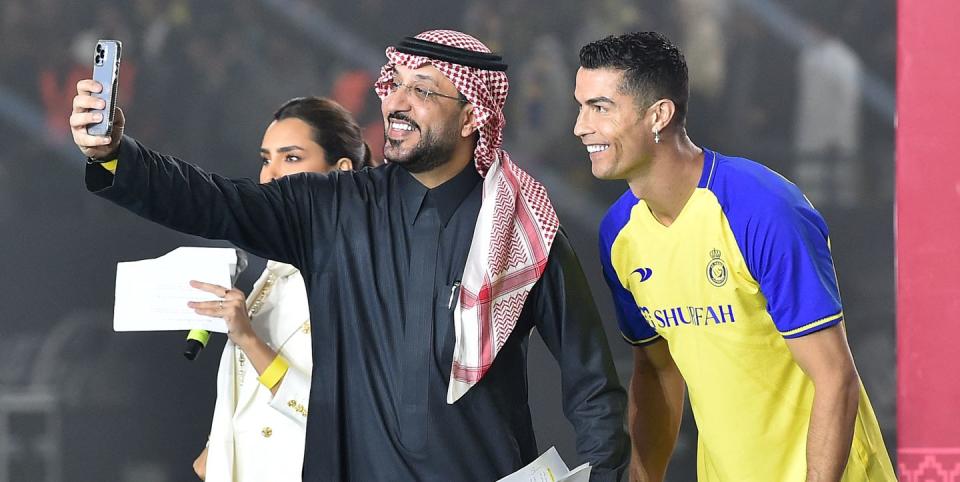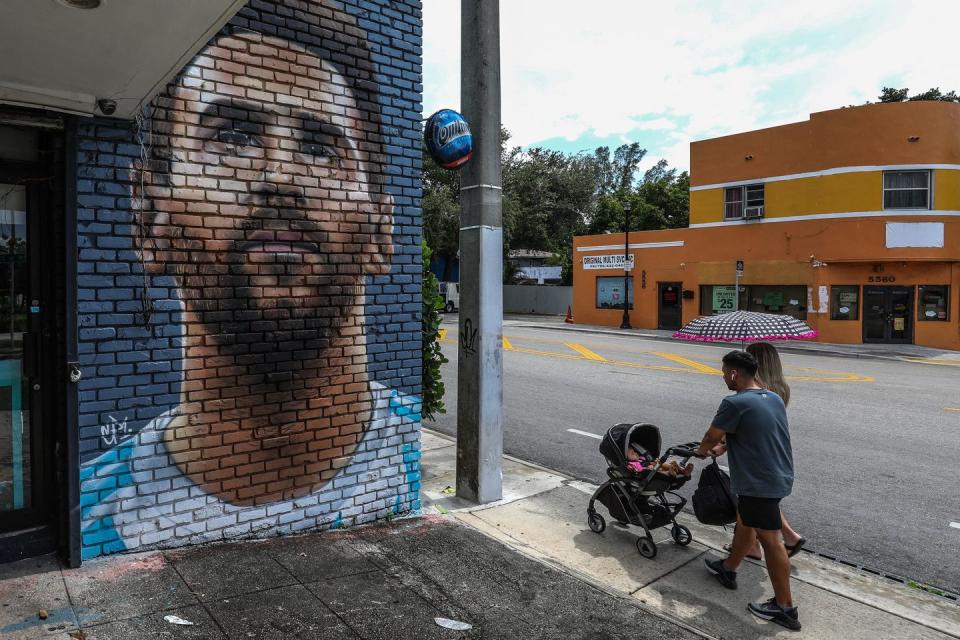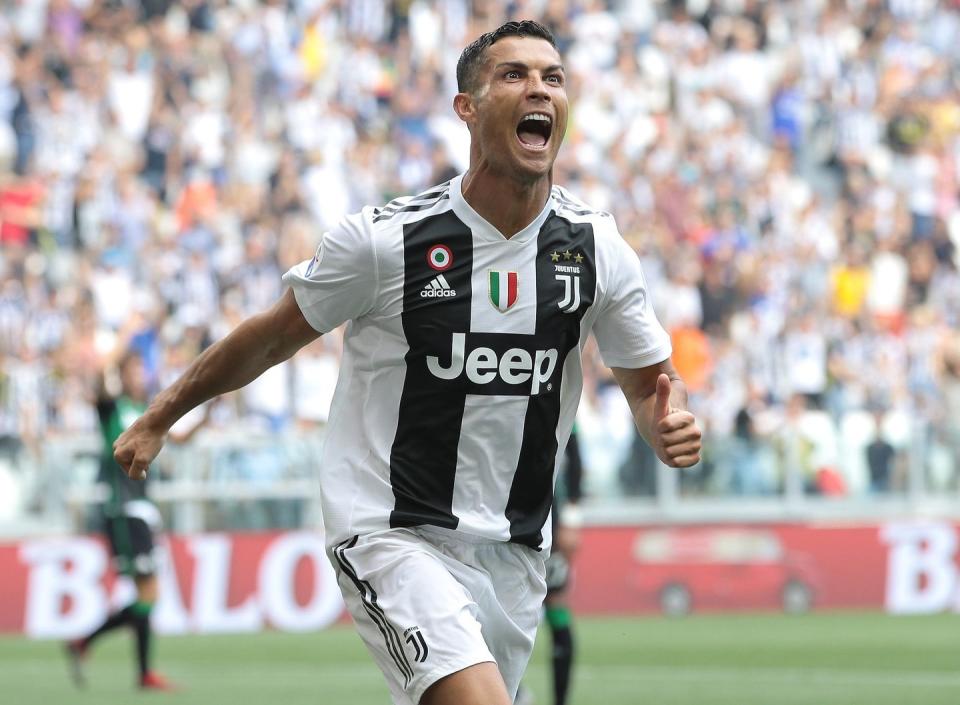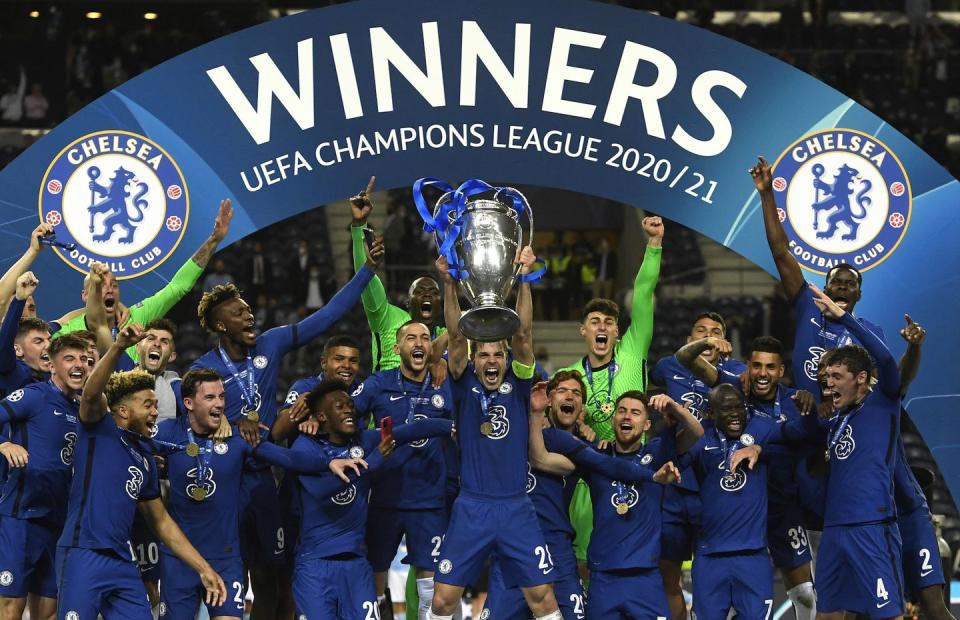Saudi Arabia and Cristiano Ronaldo Have Sparked a Money-Drenched Tug-of-War in World Soccer

If an autocratic state’s slush fund offered you tens of millions of dollars to play soccer in the desert for a couple of years, would you take it?
What about a hundred million?
Believe it or not, these sums are actually below some early reports of what’s been on offer to a few marquee players after Saudi Arabia’s Public Investment Fund (PIF) took over four of the Saudi soccer league’s biggest teams this month. Cristiano Ronaldo was already over there, playing for Al-Nassr since January after he accepted an offer that by some reports totals over $200 million per annum. He’s since been joined by Karim Benzema, who will leave Real Madrid this summer to play for Al-Ittihad. Initial reports suggested he would be compensated at a level upwards of $100 million a year, though there’s now some doubt whether it’s quite that high. He’s got a new teammate in N’Golo Kante, a World Cup winner with France, who will leave Chelsea and receive $100 million plus image licensing deals over four years.
Possibly.
These contracts are not public and the sums are not confirmed, but the exact numbers almost don’t matter. The message is clear: come play in Riyadh for a couple years and never worry about money again. Come to Jeddah and set your family up for generations.
One player the Saudi Pro League has missed out on, though, is the greatest who ever lived, Lionel Messi, who’s chosen instead to depart Paris Saint-Germain for Inter Miami, one of the newer MLS outfits owned in significant part by David Beckham. Don’t mistake Messi’s decision for some moral stand against the Saudi government’s human rights record, however: he’s already signed up as a Saudi tourism ambassador, and we can safely assume he’s well-compensated for all his ambassadoring. (According to Spanish outlet AS, it’s more than $30 million a year.) Messi was likely drawn to South Florida by the more relaxed environs of MLS after some tumultuous years at PSG (culminating with a missed practice for a trip to the Kingdom to fulfill his ambassadorial duties) and a highly American financial proposition.

He’ll get a healthy salary around $54 million, even if it’s below the rumored $400 million a year the Saudis put on the table. But he’s also been offered an equity stake in the club once he’s retired, a deal nearly as enticing as the one Beckham signed back in 2007, which allowed him to acquire an MLS expansion franchise at a cut-price $25 million. (He exercised that option to establish Inter Miami in 2014, a year after Manchester City’s ownership group paid $100 million to set up NYCFC.)
But wait, there’s more: according to a Wall Street Journal report, Messi has also been enticed by Adidas and Apple, the MLS’s two biggest sponsors. The latter purchased the rights to broadcast games on Apple TV+ for $2.5 billion over 10 years in 2022, and they saw broadcasting the GOAT as so transformational for that project that they’ve offered him a cut of new subscriber revenue. Adidas has long sponsored Messi personally and will be eager to see him decked out fully in the three stripes for the next two and a half years, though the details of any added financial commitment there aren’t public.
In this way, a couple of multinational corporations have helped win the battle for Messi’s services on behalf of the United States. The MLS is often mocked by fans of soccer’s traditional powers, but seven teams featured on a Forbes list of the world’s 30 most valuable soccer franchises published last month. A $1 billion valuation for LAFC is a projection of serious growth, the kind that could spring the MLS into global relevance alongside the leagues in England, Spain, Italy, Germany, and France, as well as the pan-European superplayoff of the Champions League.
Among the European leagues, the Premier League is the richest: its clubs occupy 11 of the top 20 spots in Deloitte’s Football Money League, and 16 of the top 30. Things are less rosy around the rest of Europe, however, as financial mismanagement from some clubs on the continent was exposed under the stress of the pandemic and everybody has been left behind by the Premier League TV contract. (Over $12 billion across four years when you combine UK and international rights.) The remaining interest in a European Super League—a corporate power play from the biggest clubs across Europe, including England’s, that was blocked in large part by Europe’s soccer fans in 2021—comes from big clubs on the continent, like Real Madrid or Juventus, who fear they cannot compete with the Premier League financially. There is angst even within the European game, as the old powers of Italy and Spain feel swamped by big money. By some reports, the Saudis believe they can get their league in the same bracket as France or Italy, but probably not the Premier League. They’d do it by picking off Europe’s aging stars with lucrative pre-retirement contracts, not unlike the MLS has done for years, and then getting more prime-age players as they get better-positioned to feast on the European clubs’ financial turmoil and internecine conflict.

Messi’s journey showcases how we got here. He made his name and set the world alight across 17 seasons at F.C. Barcelona, one of Europe’s most storied clubs and a longtime financial powerhouse. It’s still one of the world’s most valuable, at $5.5 billion according to Forbes, but not one of its best-run. (Barcelona is owned by 144,000 “members”—an arrangement shared by Real Madrid and by Bayern Munich in Germany, where a single majority shareholder is mostly forbidden by law.) Mismanagement and wild spending in Catalunya put Barcelona at odds with the financial regulations of La Liga, the Spanish league, such that they could not renew Messi’s contract and were forced to let him go to Paris.
PSG have the backing of the Qatari royals, who’ve spent ungodly sums to bring Kylian Mbappe and Neymar and many more to play there. Before that, they spent big to bring the World Cup to Doha this past winter. Sheikh Jassim of Qatar is currently bidding to buy Manchester United for $6.3 billion, locked in a battle with British petrochemical billionaire Jim Ratcliffe to take it off the hands of the Glazer family, who are one of 9 Premier League clubs with American ownership. That includes the heavyweights of Liverpool, Arsenal, and Chelsea, where Todd Boehly has led a consortium to insane levels of spending—$676 million net in the first 8 months or so—and perpetuated some serious American stereotypes along the way. (Few American owners enjoy the kind of love that Ryan Reynolds and Rob McElheny do at lower-league Wrexham.) There’s even some anger among fans of Chelsea’s rivals around the fact that the Saudi PIF is invested with Boehly’s Clearlake Capital and also buying up Chelsea players to take them to the Saudi league. By now, it should be clear how tangled up this mess is. Meanwhile, their eminences from Abu Dhabi took over Manchester City way back in 2011 and took them to the European mountaintop by totally playing by all the rules. Oh, and PIF took over Newcastle United in 2020, with the backing of Boris Johnson’s government and over the calls of human rights groups.
It’s here where we should get to the moralities. The United States and Britain have committed atrocities in Saudi Arabia’s area of the world and many others, but so have the Saudis. Just ask the Yemenis, though they had American help on that. The differences between London and Washington and Riyadh are best summed up in a few questions: where would you rather be a woman? Where would you rather speak out publicly against the people in power? Where would you rather be gay? Where would you rather be poor? Where would you rather be a member of the royal family? Well, that one only applies to two out of three. But even with reactionary forces on the march across the United States and Britain’s added economic troubles, we all know the answers.

Ultimately, few moralities matter if you can pull incomprehensible wealth out of the ground and hand it out as you wish, or if you command significant power in the American financial markets. Some Britons are more aggravated by the American invasion than the takeovers from Middle Eastern regimes, and those that oppose any one takeover cannot depend on a united front from other fans like they did when the European Super League reared its head. It’s tough to blame Newcastle fans in a way when their town—battered by the economic evolutions of the last few decades—was on the verge of securing a top-level football team. Why should they sacrifice when so many have never been asked? But then, which other owners have done what Mohammed bin Salman has off the field?
The Saudi authorities insist this is a push to grow their game, boost public health, and bring investment to sport as MBS moves to diversify their economy away from fossil-fuel extraction, and it probably does all those things. But it’s also clearly an effort to give the House of Saud a new coat of paint—not just as rulers of a less retrograde country, but as the preeminent regional power in the Middle East, another gravitational pole of the global order. The Athletic reports Saudi Arabia “is aiming to host 25 world championships across a number of sports by 2030,” and their venture into—some would say takeover of—the game of golf could prove wildly successful if the LIV partnership with the PGA Tour can survive an antitrust review.
Which isn’t to say this soccer thing is quite so easy. This has happened before. The Chinese Super League seemed to become a financial powerhouse overnight back in 2016, throwing cash at players to lure them across the world from Europe’s heritage leagues. They even got a few prime-age guys, like Oscar, the Brazilian attacking midfielder who’d starred for Chelsea, as well as aging heavyweights like Javier Mascherano. Oscar is still playing for the Shanghai Ports at 31 years old. But by 2019, China’s charge had begun to melt away, and the country’s extended and draconian COVID lockdowns from 2020 onwards disappeared the league from the world stage. In fairness, it never really made it on. ESPN has already covered Ronaldo’s exploits at Al-Nassr more than they did anything in China. One part of the sell is that Saudi stadiums are genuinely packed with loud fans who create atmosphere.
Ronaldo went to Saudi despite the fact that his family is already set up for generations. (He’s brought in well over $1 billion over his career, minus tax, which was a problem for both him and Messi in Spain.) He seemingly never considered going to MLS. It was a stranger case than Kante’s move: while the Frenchman’s probably made a pretty penny playing in the Premier League, he doesn’t have anywhere near the assets of Ronaldo and Messi, or probably even Benzema. This was the chance for a kid born to Malian immigrant parents in Paris to settle his financial affairs, and he took it—a deal that doesn’t sound that different from the one the Toon Army took up in Newcastle. But beyond these marquee names, there’s perhaps just as big news in reports that both Ruben Neves, a solid 26-year-old Premier League midfielder, and Chelsea goalkeeper Edouard Mendy have agreed to go to the Saudi Pro League while still in their prime years. Oh, and Bernardo Silva, one of the very best players in Europe who's coming off a three-trophy season with Manchester City at 28, is reportedly choosing between the Saudi league and PSG, whose Qatari owners have some frosty relations with their peninsular neighbors. Will these be flashes in the pan, like Oscar’s $80 million transfer to China seven years ago, or are they real?
If the Saudi push is to come up short, it won’t be because of any moralizing. The European clubs will be hoping many decades of sporting heritage will protect their product, though the Londoners of West Ham celebrated their victory in a two-year-old tournament a few weeks back like it was the World Cup. And why not? You’ve got to take your thrills as they come, and fans will accept anybody who supplies them. Whether it’s an American billionaire or an oil-state emir or a president the fans elect, there’s little sign it matters to folks so long as it means a few more great days out with family and friends. Besides, they rarely get much of a choice. Messi did, and he got the best deal of all because he recognized an opportunity to go from employee to partner—to become an owner himself. More American—and even European—teams might have to offer that kind of deal to survive the Saudi flood of cash.
You Might Also Like

